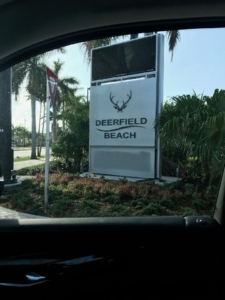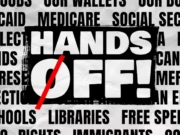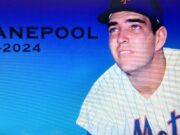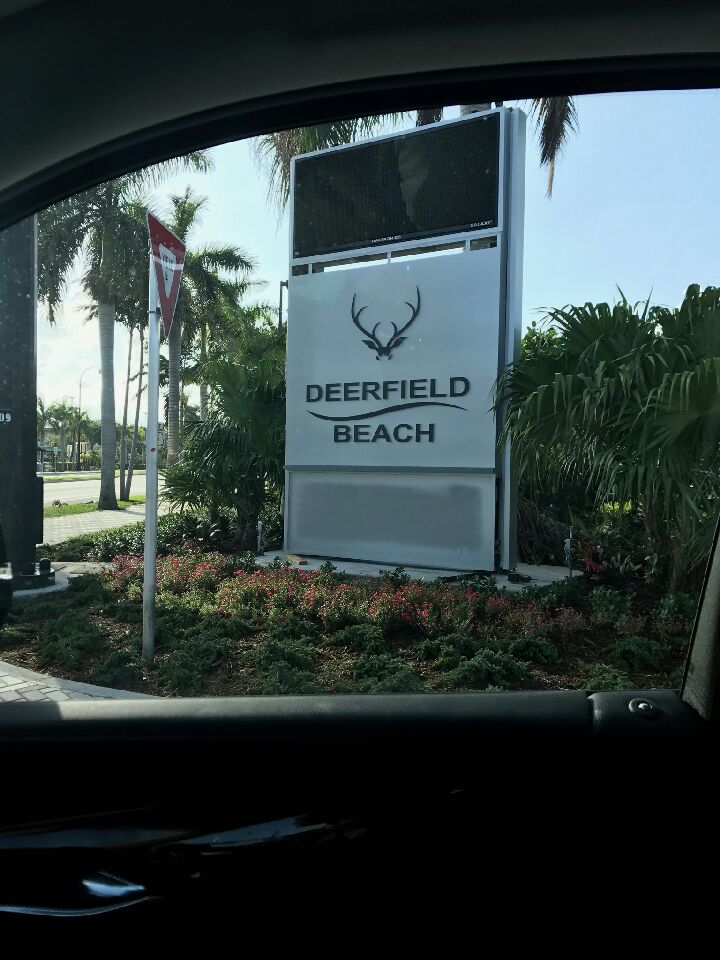
Deerfield-New.com-Deerield Beach,Fl-The Sun-Sentinel who yesterday ran a story about a Deerfield Beach business and then the City of Deerfield Beach tweeted it,in what seemed to be a promotion for the same story, causing us to question it.Deerfield-News.com also questioned coverage and comments published by Sun-Sentinel in regards to late Mayor Jean Robb after her death.Deerfield-News.com also questioned late coverage by The Sun-Sentinel of Jean Robb’s life held by the citizens of Deerfield Beach.Deerfield-News.com also questioned why they failed to mention Mayor Ganz did not attend former Mayor Robb’s funeral which we learned about on Facebook,timely.Sun Sentinel you also did not cover the Deerfield youth injured playing football that Bob Norman from WPLG covered or the story on former Mayor Noland’s daughter being hired as the newly created position of superintendent of recreation timely .
We could not agree more with the last sentence from Politco.com. “Journalists are supposed to report the news, not suppress it,” Lazarow said. “The Sun Sentinel needs to stop protecting the mayor and her allies and do their job.” Deerfield-News.com can say the same for the coverage in the City of Deerfield Beach from The Sun-Sentinel stop protecting the Mayor and his allies and do your job.
From Politico .com The South Florida Sun Sentinel killed a news story on its website about Hallandale Beach Vice Mayor Bill Julian admitting on tape that he sought developer favors in return for his vote — a move by the newspaper’s leadership that appears to be part of a pattern of censoring controversial stories, according to multiple sources inside and outside the Fort Lauderdale newsroom.Bison/pacar
The story concerning Julian’s alleged bribe-taking was first reported by WPLG-10, where investigative reporter Bob Norman obtained a voice message that the commissioner mistakenly left after he failed to properly hang up a phone. Julian discussed voting favorably for the $450 million Diplomat Golf & Tennis Club and linked it to alleged pledges from the developer’s attorneys who allegedly promised campaign contributions and campaign volunteers as well as a new van for his favorite city charity.
In a second report by Norman, Julian admitted it was his voice on the recording. Diplomat representatives deny wrongdoing. But Julian didn’t sound so sure in his interview with Norman.
“I don’t know if it’s illegal,” Julian told the reporter. “I don’t know.”
Through it all, the Sun Sentinel refused to cover the issue in their backyard. It started on Wednesday evening, when editors quickly pulled down its story with the headline “Hallandale commissioner accused of taking possible bribe in exchange for vote.”
POLITICO Florida obtained frame grabs of the clip ( available here) before the newspaper removed the story from its website.
The story never made the paper the next morning, Thursday. And sources say that editors forbid the reporter who covers Hallandale Beach from attending a city budget hearing Thursday when two city commissioners were removed by police because they wanted to discuss the corruption allegations against Julian. The reporter, Susannah Bryan, could not be reached for comment.
ADVERTISING
Political insiders and newsroom staffers say the decision to kill the reporting was made by editor and publisher Howard Saltz, who did not return a POLITICO Florida email for comment Thursday.
“Saltz kills stories in the classic way: He nitpicks them to death,” said one source familiar with the newsroom discussions of the story. “So here he was saying, ‘oh, this is just an allegation. We don’t have all the facts. It’s not responsible to put this out there. We don’t have comment from Julian.’ And then what happens? They stop Susannah from covering the meeting the next day and getting comment from Julian.”
After the original version of this article posted, a source familiar with the story and the paper’s discussions said that Bryan wasn’t prohibited from going to the meeting, but was just told by her editor that she was not allowed to report the bribery allegations.
Some reporters are frustrated, said Buddy Nevins, a former Sun Sentinel political writer who covered the contentious Thursday meeting on his Broward Beat blog.
“I keep hearing that stories are being killed from time to time and no one knows why,” Nevins said. “The reporters feel they shouldn’t rock the boat.”
Said another newsroom source: “Look, there’s a climate of fear. Newspapers are dying. If Howard wants something, no one asks why. People want to keep their jobs.” Asked why this story would be censored, the source said that “it’s just a guess, but this is a big development. It’s what the chamber of commerce-types want. So Howard wants it.”
The Sun Sentinel’s leadership has also been implicated in spiking other edgy stories.
Last week, sources said, a reporter was dissuaded from writing about controversial Zika-awareness billboards that featured giant condoms. The signs were removed after protests from local leaders. And, in 2014, editors quickly killed an online story about a woman who accused Hallandale Beach City Commissioner Leo Grachow of exposing himself — a charge he denied.
“That story was up for about 20 minutes and then it was gone,” a reporter said. “Everybody else covered it.”
The story about the alleged bribery in Hallandale Beach, however, was more concerning for City Commissioner Michele Lazarow, who was removed Thursday from the budget hearing along with fellow Commissioner Keith London when they wanted to discuss the bribery allegations against Julian. Lazarow faulted Mayor Joy Cooper, who cut the audio and video recording of the meeting when London and Lazarow began protesting.
The previous night, when the Sun Sentinel killed its story about Julian, Lazarow pointed it out on Facebook, saying “The Sun Sentinel editor is working for the Mayor. Rips down every negative story that hurts [the mayor’s] ‘boys.’”
Lazarow subsequently removed the message. But to her surprise, the Sun Sentinel didn’t follow up the next day. Lazarow faults the leadership for abandoning the paper’s watchdog role, which had earned it a Pulitzer Prize in 2013 for reporting about how off-duty police officers were abusing their power by speeding and endangering the public. Saltz, incidentally, was an editor credited for working on the project.
“Journalists are supposed to report the news, not suppress it,” Lazarow said. “The Sun Sentinel needs to stop protecting the mayor and her allies and do their job.”



































